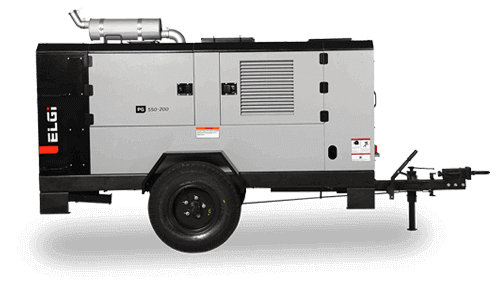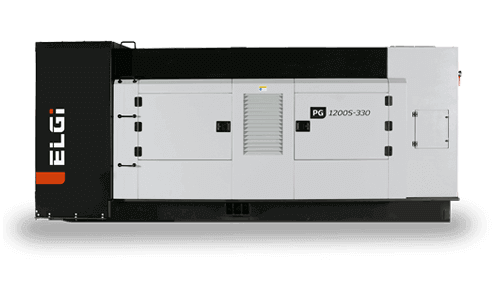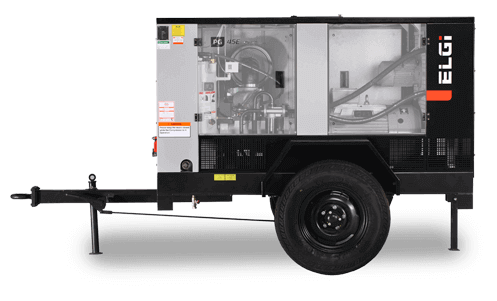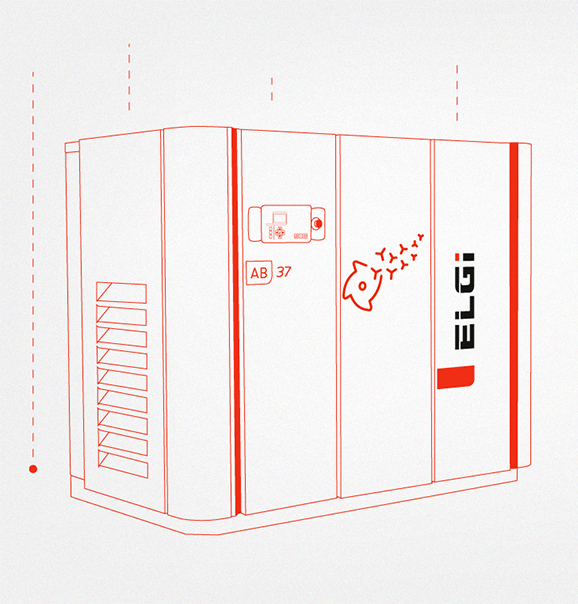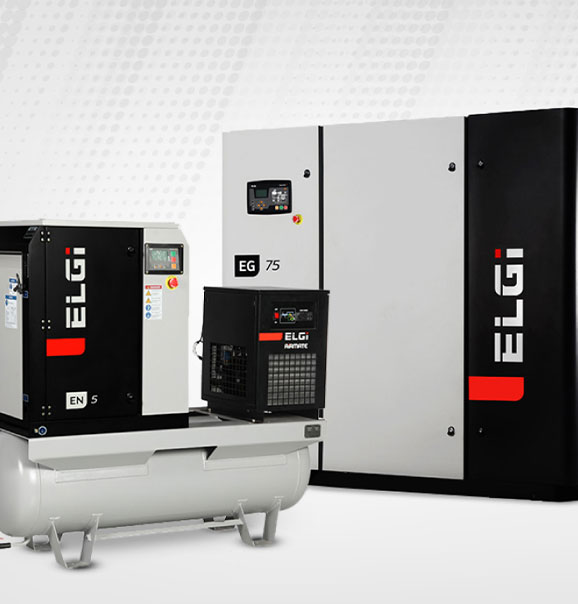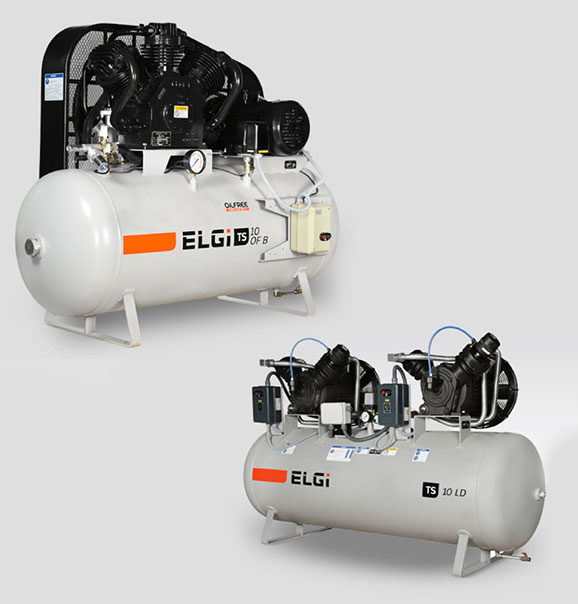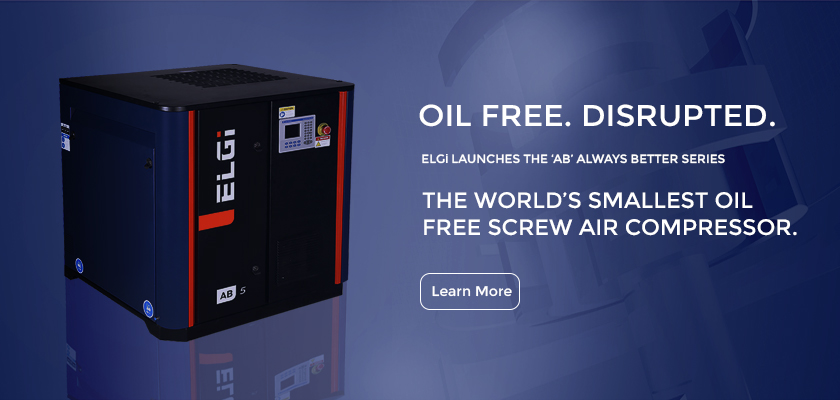Air compressors used in construction need to endure heavy dust at construction sites. They need to operate continuously to power various pneumatic tools and equipment. At ELGi, we design and manufacture robust compressors suited for dusty environments, making them the best air compressors for construction.
ELGi's range of construction air compressors are energy-efficient and offer best-in-class maintenance and operating costs. Trolley-mounted air compressors are compact, and provide high maneuverability. ELGi’s line of skid-mounted air compressors for construction are backed by an international warranty on the engines, engineered to provide better fuel economy and lower emissions in their class.
PERFECT FOR HEAVY DEMANDS
ELGi’s range of air compressors used for construction are designed to offer compressed air on demand for a longer time, either for irregular or continuous use, and are perfect for the heavy demands required in the day-to-day operations of the construction industry.
COST-EFFECTIVE OPERATION
ELGi air compressors are dedicated to delivering uncompromising reliability, efficiency, productivity and performance for the most demanding construction applications. A complete cost comparative solution by ELGi will produce several options for cost reduction and can give an attractive long-term return on investment.
BEST-IN-CLASS RELIABILITY
ELGi’s range of portable air compressors is recommended for the construction industry as it delivers best-in-class reliability, even in demanding work sites. We also have industrial-grade steel and powder coated canopy for maximum corrosion protection and durability. We help to maximise the operational efficiency and profitability with our trolley-mounted-compressors and skid-mounted-compressors, along with custom-built models based on user preference for all your construction application making it best portable air compressor for construction.
Considerations for Choosing an Air Compressor for Construction
There is a wide variety of construction air compressors available for sale, each designed to meet various needs and requirements. However, selecting the best air compressor for construction operation is crucial for optimal performance and efficiency.
Air Requirement: Determine the specific air requirements of your construction projects, including air volume (measured in cubic feet per minute, CFM) and pressure (measured in pounds per square inch, PSI). To meet these demands, construction air compressors of sufficient capacity are needed.
Portability: Consider the mobility requirements of your construction site. Choose an air compressor for construction site that is portable and easy to transport, especially if you need to move it frequently between job sites or within the same site.
Power Source: Decide whether you need a compressor powered by electricity, gasoline, diesel, or pneumatic (air-powered). Choose a power source that is suitable for your construction environment and readily available at the job site.
Type of Construction: Consider the nature of your construction projects and the tasks that require compressed air. For example, if you need to operate pneumatic tools such as nail guns or jackhammers, choose a compressor that can deliver the required air pressure and volume consistently.
Tank Size: Evaluate the size of the compressor's air tank, which determines the storage capacity of compressed air. A larger tank size allows for longer periods of continuous operation without the need for frequent cycling.
Duty Cycle: Consider the duty cycle of the compressor, which refers to the percentage of time it can operate continuously within a given time period. Choose an air compressor for construction site with a duty cycle that matches the demands of your projects.
Durability and Reliability: Construction environments can be harsh and demanding, therefore, selecting a compressor that is built to withstand rugged conditions is crucial. Look for features such as sturdy construction, corrosion-resistant materials, and reliable components.
Noise Level: Construction sites often have noise regulations or considerations for worker safety. Choose a compressor with a noise level that complies with local regulations and ensures a comfortable working environment for your crew.
Maintenance Requirements: Consider the maintenance needs of the compressor, including oil changes, filter replacements, and general servicing. Choose a compressor that is easy to maintain and has accessible service points for routine upkeep.
Cost and Value: Evaluate the initial purchase cost of the compressor as well as long-term operating costs, including fuel or electricity consumption, maintenance, and potential downtime. Choose a compressor that offers the best value for your budget and requirements.
Air compressors serve a variety of purposes in construction
With about $10 trillion spent on construction-related goods and services every year, the construction sector is one of the largest in the world economy.
Portable/Towable air compressors can be easily spotted on most construction spots as they are extremely useful due to their high output and efficiency. Heavy-duty portable air compressors are most robust and well-suited to the unique needs of road building, restoration work, civil engineering and various other construction applications. They are designed to handle tough site conditions as well as hard to reach site locations, delivering consistent performance. Compressed air in construction is also used to power tools such as power hammers, drills, saws, wrenches, nail guns and numerous other pneumatic tools. One of the major advantages of using an air compressor on a building site is the noise-free operation and easy maintenance they provide.
COMMON APPLICATIONS OF COMPRESSED AIR
Pneumatic Tools: Compressed air is an excellent source of energy for power tools such as drills, jackhammers, impact wrenches, grinders, sanders, nail guns and other vital construction equipment. The main advantage of using air compressors to power these tools is that instead of using a variety of tools each requiring their own power source, a single air compressor can be used to power each tool as needed.
Lifting and handling operation: Lifting and handling operations are unavoidable in the construction industry. Lifting operation can be carried out both manually and using lifting equipment. Lifting equipment and handling devices use portable screw air compressor which ensures reliable and safe lifting and lowering of the load.
Road digging, cutting and cleaning: Road cleaning machines are used to keep roads, pavements and other hard surfaces clean and free from debris. Doing so helps in reducing the number of accidents. The road cleaning machines typically use portable air compressors.
Tunnel digging: During the process of digging a tunnel the ground exerts hydrostatic pressure which is opposed by the compressed air pressure at the cutter-head. Easy manoeuvrability offered by ELGi portable screw air compressor makes it best suited for this process.
FREQUENTLY ASKED QUESTIONS
TO THIS INDUSTRY
From service plans, service networks to Genuine ELGi parts, explore our vast range of services and parts to find exactly what you need.
PLACE A REQUEST


